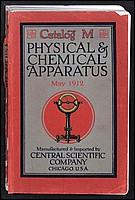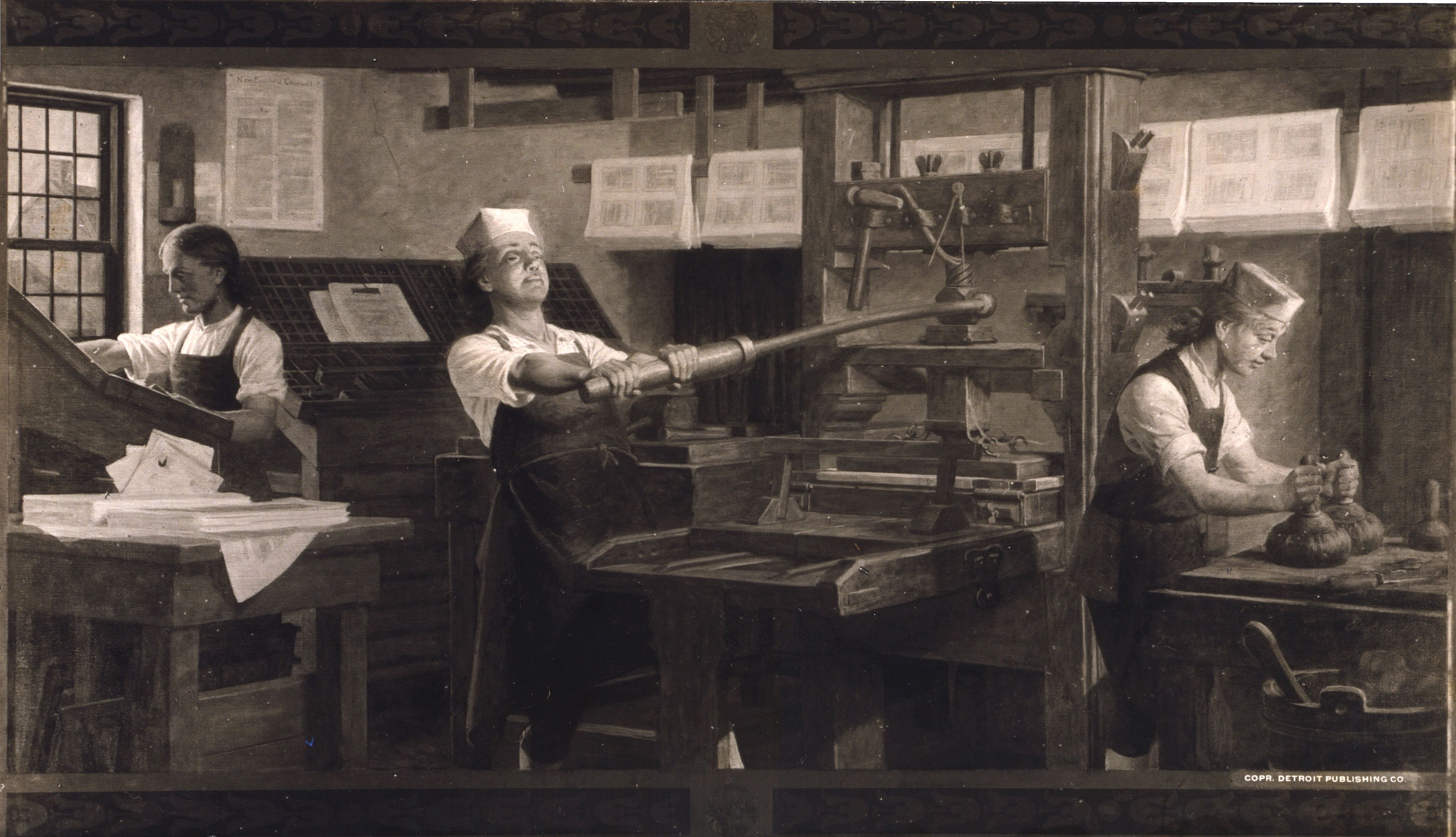|
Mail-order
Mail order is the buying of goods or services by mail delivery. The buyer places an order for the desired products with the merchant through some remote methods such as: * Sending an order form in the mail * Placing an order by telephone call * Placing an order with a travelling agent * Filling in an order form on a website or mobile app — if the product information is also mainly obtained online rather than via a paper catalogue or via television, this mail-order model is called online shopping or e-commerce Then, the products are delivered to the customer. The products are usually delivered directly to an address supplied by the customer, such as a home address, but occasionally the orders are delivered to a nearby retail location for the customer to pick up. Some merchants also allow the goods to be shipped directly to a third party consumer, which is an effective way to send a gift to an out-of-town recipient. Some merchants deliver the goods directly to the customer thro ... [...More Info...] [...Related Items...] OR: [Wikipedia] [Google] [Baidu] |
Pryce Pryce-Jones
Sir Pryce Pryce-Jones (16 October 1834 – 11 January 1920) was a Welsh entrepreneur who formed the first mail order business, revolutionising how products were sold. Creating the first mail order catalogues in 1861 – which consisted of woollen goods – for the first time customers could order by post, and the goods were delivered by railway. The BBC summed up his legacy as "The mail order pioneer who started a billion-pound industry". Pryce-Jones became hugely successful in the United Kingdom where he had over 100,000 customers, which included Florence Nightingale and Queen Victoria. In England he was able to promise next-day delivery. His business also took off overseas, selling Welsh flannel to the rest of Europe, the United States followed by Australia. During the 1870s he took part in exhibitions all over the world, winning several awards, and he became world famous. The Queen knighted him in 1887. Early years Pryce-Jones was born in Llanllwchaiarn, just ou ... [...More Info...] [...Related Items...] OR: [Wikipedia] [Google] [Baidu] |
Package Delivery
Package delivery, or parcel delivery, is the delivery of shipping containers, parcels, or high-value mail in single shipments. The service is provided by most postal systems, express mail, private courier companies, and less-than-truckload shipping carriers. Package delivery differs by country due to shipping costs and population size. In 2019, for example, China, the United States, and Japan were the top countries in terms of package delivery volume while Latvia, Macau, and Iceland ranked at the bottom. This can be explained in part by the population of the bottom three nations totaling 2 million while the top three represent a population of almost 2 billion. Mail order and next-day delivery in the United Kingdom Welsh entrepreneur Pryce Pryce-Jones formed the first mail order company in 1861. He distributed catalogues of Welsh flannel across the United Kingdom, with customers able to order by mail for the first time—this following the Uniform Penny Post in 1840 and the invent ... [...More Info...] [...Related Items...] OR: [Wikipedia] [Google] [Baidu] |
Central Scientific Co Catalog Cover
Central is an adjective usually referring to being in the center (other), center of some place or (mathematical) object. Central may also refer to: Directions and generalised locations * Central Africa, a region in the centre of Africa continent, also known as Middle Africa * Central America, a region in the centre of America continent * Central Asia, a region in the centre of Eurasian continent * Central Australia, a region of the Australian continent * Central Belt, an area in the centre of Scotland * Central Europe, a region of the European continent * Central London, the centre of London * Central Region (other) * Central United States, a region of the United States of America Specific locations Countries * Central African Republic, a country in Africa States and provinces * Blue Nile (state) or Central, a state in Sudan * Central Department, Paraguay * Central Province (Kenya) * Central Province (Papua New Guinea) * Central Province (Solomon Islands) * Ce ... [...More Info...] [...Related Items...] OR: [Wikipedia] [Google] [Baidu] |
Benjamin Franklin
Benjamin Franklin (April 17, 1790) was an American polymath: a writer, scientist, inventor, statesman, diplomat, printer, publisher and Political philosophy, political philosopher.#britannica, Encyclopædia Britannica, Wood, 2021 Among the most influential intellectuals of his time, Franklin was one of the Founding Fathers of the United States; a Committee of Five, drafter and signer of the United States Declaration of Independence, Declaration of Independence; and the first United States Postmaster General, postmaster general. Born in the Province of Massachusetts Bay, Franklin became a successful Early American publishers and printers, newspaper editor and printer in Philadelphia, the leading city in the colonies, publishing ''The Pennsylvania Gazette'' at age 23. He became wealthy publishing this and ''Poor Richard's Almanack'', which he wrote under the pseudonym "Richard Saunders". After 1767, he was associated with the ''Pennsylvania Chronicle'', a newspaper known for it ... [...More Info...] [...Related Items...] OR: [Wikipedia] [Google] [Baidu] |
Alexandra Of Denmark
Alexandra of Denmark (Alexandra Caroline Marie Charlotte Louise Julia; 1 December 1844 – 20 November 1925) was List of British royal consorts, queen-consort of the United Kingdom and the British Dominions, and Empress of India, from 22 January 1901 to 6 May 1910 as the wife of Edward VII. Alexandra's family had been relatively obscure until 1852, when her father, Christian IX of Denmark, Prince Christian of Schleswig-Holstein-Sonderburg-Glücksburg, was chosen with the consent of the major European powers to succeed his second cousin Frederick VII of Denmark, Frederick VII as King of Denmark. At the age of sixteen, Alexandra was chosen as the future wife of Albert Edward, Prince of Wales, the son and heir apparent of Queen Victoria. Wedding of Prince Albert Edward and Princess Alexandra, The couple married eighteen months later in 1863, the year in which her father became king of Denmark as Christian IX and her brother William was appointed king of Greece as George I of G ... [...More Info...] [...Related Items...] OR: [Wikipedia] [Google] [Baidu] |
Victoria Of The United Kingdom
Victoria (Alexandrina Victoria; 24 May 1819 – 22 January 1901) was Queen of the United Kingdom of Great Britain and Ireland from 20 June 1837 until Death and state funeral of Queen Victoria, her death in January 1901. Her reign of 63 years and 216 days, which was List of monarchs in Britain by length of reign, longer than those of any of her predecessors, constituted the Victorian era. It was a period of industrial, political, scientific, and military change within the United Kingdom of Great Britain and Ireland, United Kingdom, and was marked by a great expansion of the British Empire. In 1876, the British parliament voted to grant her the additional title of Empress of India. Victoria was the daughter of Prince Edward, Duke of Kent and Strathearn (the fourth son of King George III), and Princess Victoria of Saxe-Coburg-Saalfeld. After the deaths of her father and grandfather in 1820, she was Kensington System, raised under close supervision by her mother and her Comptrol ... [...More Info...] [...Related Items...] OR: [Wikipedia] [Google] [Baidu] |
Florence Nightingale
Florence Nightingale (; 12 May 1820 – 13 August 1910) was an English Reform movement, social reformer, statistician and the founder of modern nursing. Nightingale came to prominence while serving as a manager and trainer of nurses during the Crimean War, in which she organised care for wounded soldiers at Constantinople. She significantly reduced death rates by improving hygiene and living standards. Nightingale gave nursing a favourable reputation and became an icon of Victorian culture, especially in the persona of "The Lady with the Lamp" making rounds of wounded soldiers at night. Recent commentators have asserted that Nightingale's Crimean War achievements were exaggerated by the media at the time, but critics agree on the importance of her later work in professionalising nursing roles for women. In 1860, she laid the foundation of professional nursing with the establishment of Florence Nightingale Faculty of Nursing and Midwifery, her nursing school at St Thomas' Hospi ... [...More Info...] [...Related Items...] OR: [Wikipedia] [Google] [Baidu] |
Rural
In general, a rural area or a countryside is a geographic area that is located outside towns and cities. Typical rural areas have a low population density and small settlements. Agricultural areas and areas with forestry are typically described as rural, as well as other areas lacking substantial development. Different countries have varying definitions of ''rural'' for statistical and administrative purposes. Rural areas have unique economic and social dynamics due to their relationship with land-based industry such as agriculture, forestry, and resource extraction. Rural economics can be subject to boom and bust cycles and vulnerable to extreme weather or natural disasters, such as droughts. These dynamics alongside larger economic forces encouraging urbanization have led to significant demographic declines, called rural flight, where economic incentives encourage younger populations to go to cities for education and access to jobs, leaving older, less educated and ... [...More Info...] [...Related Items...] OR: [Wikipedia] [Google] [Baidu] |
Penny Black
The Penny Black was the world's first adhesive postage stamp used in a public Mail, postal system. It was first issued in the United Kingdom on 1 May 1840 but was not valid for use until 6 May. The stamp features a profile of Queen Victoria. In 1837, British postal rates were high, complex and anomalous. To simplify matters, Sir Rowland Hill proposed an adhesive stamp to indicate pre-payment of postage. At the time it was normal for the recipient to pay postage on delivery, charged by the sheet and on distance travelled. By contrast, the Penny Black allowed letters of up to to be delivered at a flat rate of one penny, regardless of distance. Treasury competition On 13 February 1837, Sir Rowland Hill proposed to a government enquiry both the idea of a pre-paid Postage stamp, stamp and a pre-paid envelope, a separate sheet folded to form an enclosure for carrying letters. Hill was given a two-year contract to run the new system, and together with Henry Cole (inventor), Henr ... [...More Info...] [...Related Items...] OR: [Wikipedia] [Google] [Baidu] |
Postage Stamp
A postage stamp is a small piece of paper issued by a post office, postal administration, or other authorized vendors to customers who pay postage (the cost involved in moving, insuring, or registering mail). Then the stamp is affixed to the face or address-side of any item of mail—an envelope or other postal cover (e.g., packet, box, mailing cylinder)—which they wish to send. The item is then processed by the postal system, where a postmark or Cancellation (mail), cancellation mark—in modern usage indicating date and point of origin of mailing—is applied to the stamp and its left and right sides to prevent its reuse. Next the item is delivered to its address. Always featuring the name of the issuing nation (with the exception of the Postage stamps and postal history of the United Kingdom, United Kingdom), a denomination of its value, and often an illustration of persons, events, institutions, or natural realities that symbolize the nation's traditions and values, every ... [...More Info...] [...Related Items...] OR: [Wikipedia] [Google] [Baidu] |
History Of Rail Transport In The United Kingdom
The United Kingdom consists of Great Britain and Northern Ireland, and previously consisted of Great Britain and the whole of Ireland. Rail transport systems developed independently on the two islands of Great Britain and Ireland, and most of the railway construction in the Republic of Ireland was undertaken before independence in 1922. Thus, the logical division to discuss the history of railways in these areas is by geographical division, rather than the political division of nation states. * History of rail transport in Great Britain discusses the history of rail transport on the larger of the British isles, comprising England, Scotland and Wales. Here, the vast majority of the railway system standardised on the standard gauge of . * History of rail transport in Ireland discusses the history of rail transport on the island of Ireland, comprising the Republic of Ireland and Northern Ireland. Here a system using a broad gauge A broad-gauge railway is a railway with a trac ... [...More Info...] [...Related Items...] OR: [Wikipedia] [Google] [Baidu] |
Uniform Penny Post
The Uniform Penny Post was a component of the comprehensive reform of the Royal Mail, the UK's official postal service, that took place in the 19th century. The reforms were a government initiative to eradicate the abuse and corruption of the existing service. Under the reforms, the postal service became a government monopoly, but it also became more accessible to the British population at large through setting a charge of one pennyOne penny in 1840 is £ today. for carriage and delivery between any two places in the United Kingdom of Great Britain and Ireland irrespective of distance. Campaign for reform Richard Cobden and John Ramsey McCulloch, both advocates of free trade, attacked the Conservative government's policies of privilege and protection, including their archaic postal system. McCulloch, in 1833, advanced the view that "nothing contributes more to facilitate commerce than the safe, speedy and cheap conveyance of letters." The campaign for cheap postage was actual ... [...More Info...] [...Related Items...] OR: [Wikipedia] [Google] [Baidu] |








